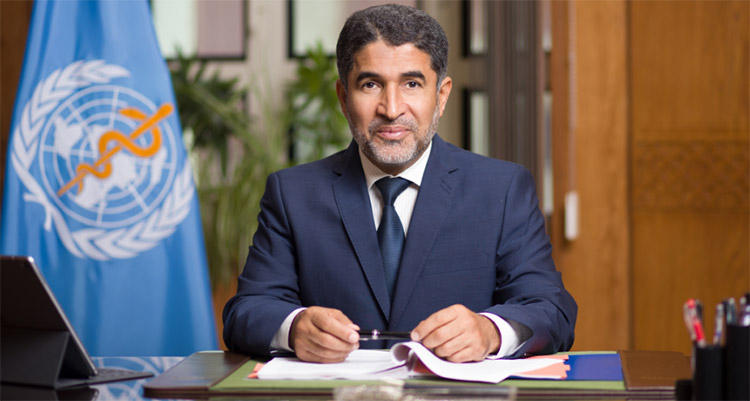
28 December 2020 – As 2020 draws to a close, I would like to thank all WHO’s countries, partners and colleagues in the Eastern Mediterranean Region for the commitment and courage you have shown during the past year.
It has been an exceptionally challenging time for us all. The COVID-19 pandemic has taken a dreadful toll. More than 117 000 people to date have lost their lives to COVID in our Region alone, including many brave health care workers. We will never forget their sacrifice.
The pandemic has devastated health systems, economies and communities. The severe disruption to essential health services such as immunization will be felt for years to come.
There is now some light at the end of the tunnel. Thanks to concerted efforts by scientists, funders and policy-makers across the world, vaccines are being developed with unprecedented speed.
However, it will require more time and effort to roll out those vaccines during 2021, and we cannot rest in the meantime. We must continue striving to prevent and control COVID-19, by adhering to all the prevention measures needed ‒ masks, hygiene, social distancing and avoidance of mass gatherings especially during the holidays ‒ and we also need to maintain essential health services.
And we need to go further. The pandemic has exposed serious flaws in our health systems and services. We need to invest in strengthening them so we are better prepared next time.
Partnership for health and our vision of Health For All By All are more important than ever. The pandemic has been a time for solidarity and action, and despite the challenges, we have worked tirelessly with our countries and partners throughout the year to progress our four strategic priorities.
Expanding universal health coverage
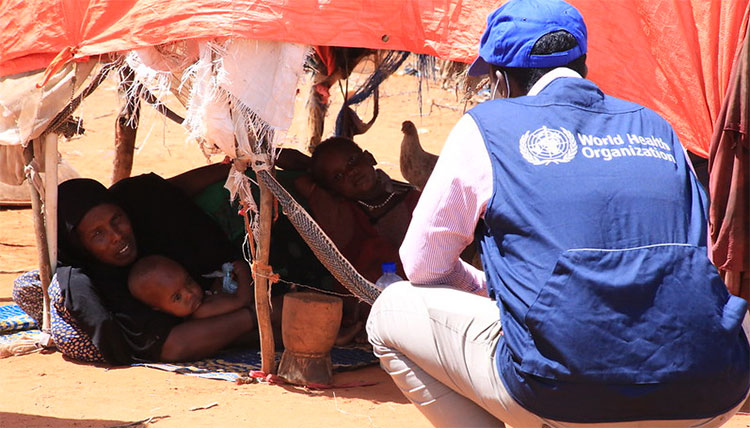
Universal health coverage is a guiding principle of all our technical work.
The pandemic compromised access to health care, but also spurred innovation which helped to maintain or restore essential health services.
Together with several partners, we created a pioneering online training course to give primary health care personnel the skills and knowledge they need in the COVID age.
We developed other online resources such as a platform for mental health support, and we were pleased to encourage and document other examples of digital innovation for health in many of our countries.
We also worked with countries on the ground to improve service delivery for communicable and noncommunicable diseases through new approaches such as home visits, community participation and integrated, multi-antigen immunization campaigns. Our efforts to strengthen immunization systems in countries will be critical when it comes to introducing COVID-19 vaccines.
We look to build on these experiences going forward and turn the pandemic into an opportunity for long-term improvement.
Addressing health emergencies
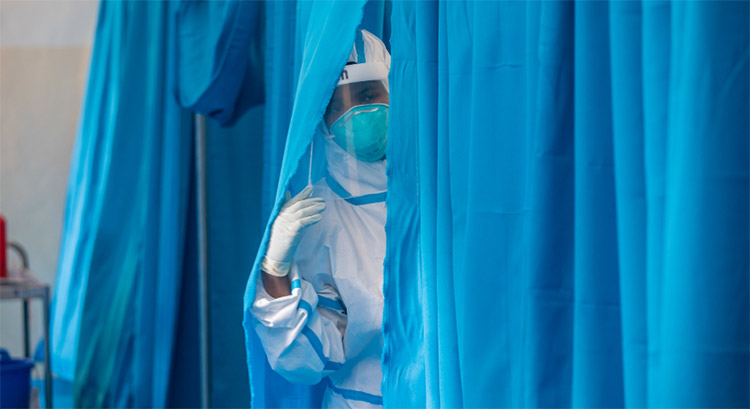
The Eastern Mediterranean Region faces health emergencies on an unprecedented scale, and so the COVID-19 pandemic posed a terrible threat to tens of millions of highly vulnerable displaced people in the Region.
I am proud of the way that WHO, our countries and our partners met that challenge. We quickly established a strategic plan and structures to guide preparedness and response efforts in the Region. The regional COVID-19 Crisis Group has brought together 35 technical and operational partners, and the response is supported by 28 major donors.
At our virtual Regional Committee session in October, we were able to highlight successful action at both country and regional levels.
Meanwhile, work to prevent, mitigate and manage other emergencies continued. Eradicating polio is a top priority, especially since the Eastern Mediterranean is now the only WHO region where polio remains endemic.
The Regional Committee endorsed a resolution to galvanize action against polio including by establishing a high-level regional subcommittee to coordinate the fight, and we look forward to stepping up our efforts in 2021.
Promoting healthier populations
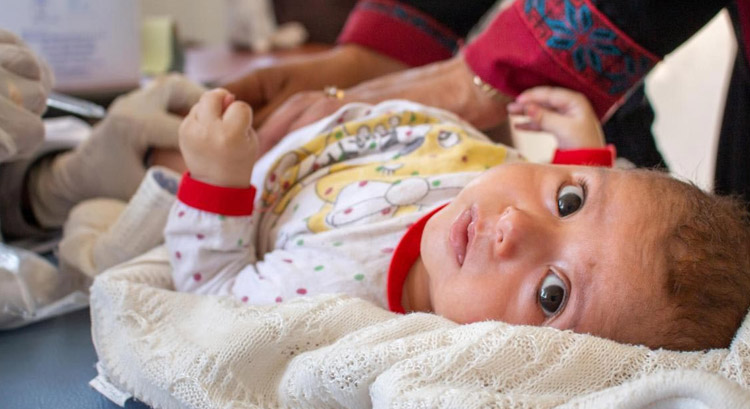
Inevitably, the COVID-19 pandemic disrupted our ongoing health promotion work, but it also demonstrated the value of that work.
Tackling the COVID-19 pandemic demands strong community engagement and a whole-of-government approach to health policy-making – exactly the sort of things WHO has been advocating for years to promote health.
We were able to see real benefits from those approaches in 2020. For example, where we implemented the Healthy Cities programme, we could observe a much more coordinated response to the pandemic.
The pandemic has also provided a welcome boost to tobacco control, with widespread bans on waterpipe smoking in public places, and a significant reduction in air pollution.
We will keep up the momentum next year. The final report of the regional Commission on Social Determinants of Health, due to be published in March 2021, is set to become a landmark reference in efforts to tackle the fundamental inequalities that underlie so much ill health in the Region.
Making transformative changes in WHO
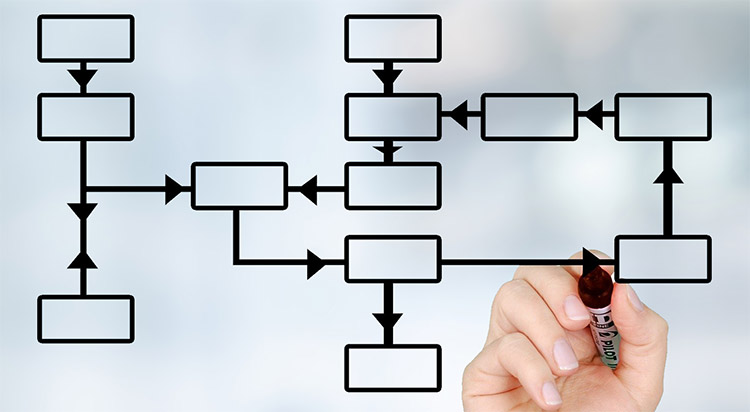
In the past couple of years, we have restructured WHO country offices and the Regional Office to align available resources more closely with each country’s priorities and maximize our impact.
That work paid dividends in 2020. Staff from different teams and offices within the Organization worked seamlessly as “One WHO” to combat the pandemic.
As part of our Transformation Agenda, we established a new department of Communications, Resource Mobilization and Partnership at the Regional Office to streamline theses three core functions.
In consequence, we were well placed to counter the COVID-19 infodemic through effective communications and community engagement, and we raised funds on a large scale to support the pandemic response in the Region – though more is still needed. In the coming months, we will be working hard to build on that experience and develop a stronger collaborative “Investment for Health” movement and a new regional partnership programme.
The launch of a new Regional Health Alliance just a few weeks ago was a landmark advance in this strategy. The Alliance is hosted by WHO and brings together 12 multilateral health, development and humanitarian agencies to accelerate progress towards the health-related Sustainable Development Goals in the Region.
That prospect of further and deeper collaboration a very welcome positive note on which to end the year. There is so much we can achieve when we all work together.
Time to honour our health care workers
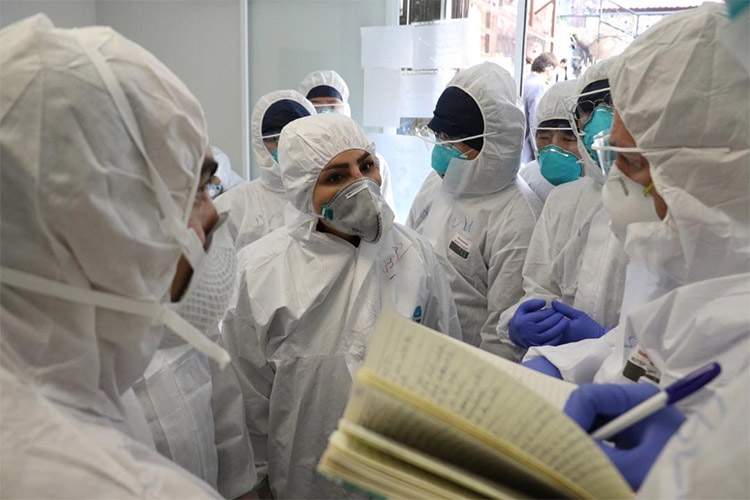
In closing, I would like once again to pay tribute to health care workers, whose heroic efforts and sacrifices are among the profound memories we take from COVID-19 response.
The pandemic has highlighted the huge challenges and risks facing health workers, including infection, violence, stigma, psychological pressure, illness and even death.
Recognizing the dedication and sacrifice of millions of frontline health and care workers, the World Health Assembly has made 2021 the International Year of Health and Care Workers. This will be an opportune time to invest in our Heroes for Health.
I wish you all a peaceful and uplifting holiday season. I hope you have a chance to relax with your loved ones while staying safe, and start 2021 refreshed and reinvigorated. We have another busy year ahead of us as we work together towards our goal: Health for All by All.


